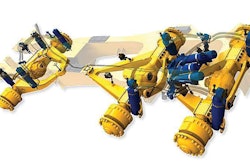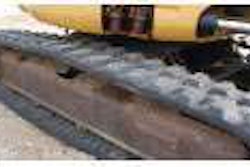By reducing agency costs, commercializing non-interstate rest areas and seeking sponsorship and naming rights for certain infrastructure projects, the Ohio Department of Transportation (ODOT) says it could save nearly $200 million annually and billions more could be generated or saved by leveraging state-owned assets and exploring public, private partnerships.
In a written statement, ODOT Director Jerry Wray on March 20 officially announced the Division of Innovative Delivery, a move he says is critical to identifying innovative and alternative funding solutions and advancing the agency’s goal developing long-term, sustainable solutions to fund future transportation construction projects.
“ODOT shares the desire of many communities to get local transportation projects finished more timely, but our current funding situation simply will not allow it,” said Wray in a written statement. “All of our projects are high priority. They all involve some component of economic development, congestion relief and safety. That is why it is crucial to come together as policy leaders and seek out innovative and alternative funding solutions in the days, months and years to come.”
ODOT recently hired Jim Riley to lead the department’s Division of Innovative Delivery. Riley has more than 23 years of private sector experience, where he worked to develop innovative and sustainable funding solutions for major transportation projects in Ohio, Virginia, Texas, Illinois, and Georgia.
The division is currently researching and developing alternative funding solutions for financing the construction of several different transportation projects in Ohio, which include:
- The Brent Spence Bridge on the Ohio River from Cincinnati to Northern Kentucky
- The Portsmouth Bypass in Scioto County
- The Rickenbacker Intermodal Connector in Pickaway County
- An interchange for U.S. Route 36 and State Route 37 on Interstate 71 in Delaware County
The division will also seek to identify and generate potential alternative funding sources from state assets, such as:
- The Ohio Turnpike
- Non-Interstate rest areas
- A sponsorship program for state-owned assets such as rest areas, bridges, interchanges and sections of highway
A complete review of all transportation projects is currently underway to identify those that could be potential candidates for public/private partnerships (P3’s), as well as additional sources of revenue to aid in the funding of major transportation projects throughout the state. Details of the review are expected later this year, according to ODOT.









